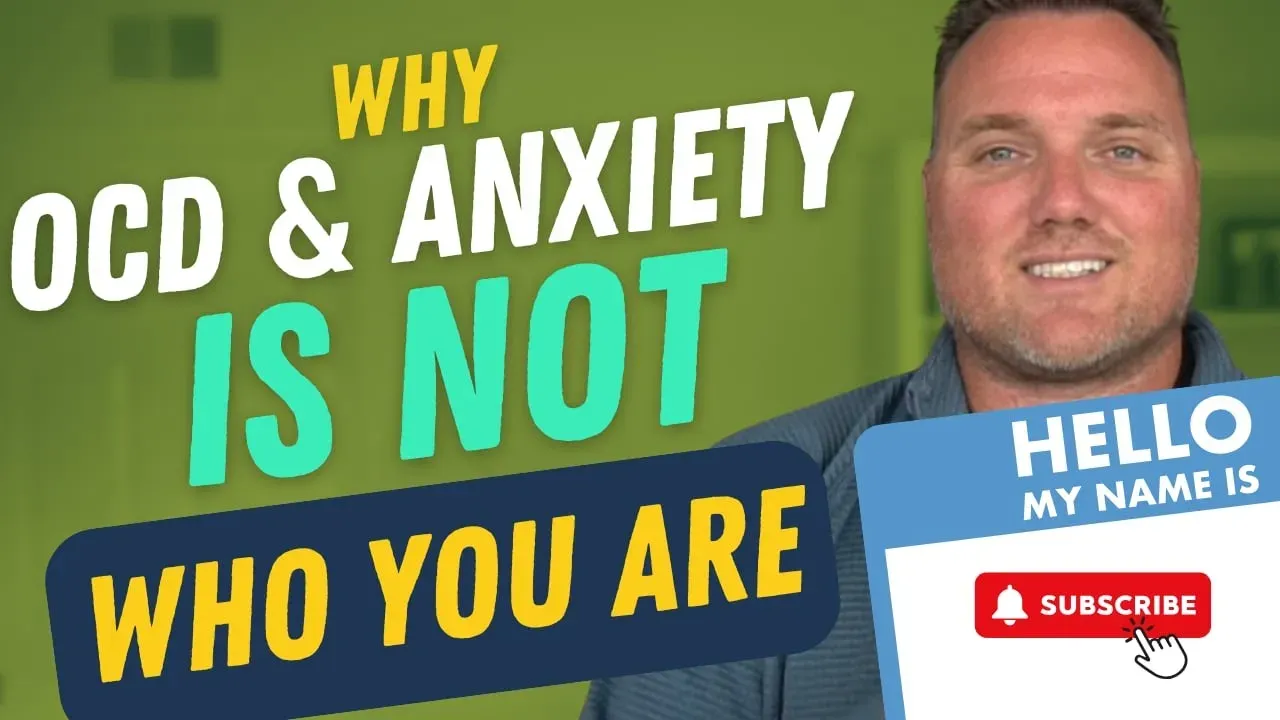Why OCD & Anxiety Isn’t Who You Are: Shift Your Identity, Reclaim Your Life
Apr 30, 2025
Why OCD & Anxiety Isn’t Who You Are: A Powerful Paradigm Shift
If you’re struggling with OCD and anxiety, it’s easy to fall into the trap of believing that these challenges define who you are. But what if you could break free from that limiting belief? In this post, we’ll explore the powerful message from Matt’s episode on Restored Minds, "Why OCD & Anxiety Isn’t Who You Are," and help you reframe how you see yourself—and your mental health journey.
Understanding the True Nature of OCD and Anxiety
According to Matt, OCD and anxiety are fundamentally rooted in fear—a universal, lower emotion experienced by all humans. When we resist fear, it builds pressure within our nervous system. Our minds then produce a cascade of "what if" thoughts, trying to justify the emotion.
The problem arises when we start to identify with these thoughts and feelings. If you believe your mind’s intrusive thoughts are you, you might think you’re broken or flawed. But Matt offers a liberating reminder: You are not your thoughts or feelings; you are the observer.
The Power of Consciousness
Matt draws from respected thinkers like Michael Singer, Eckhart Tolle, Dr. Hawkins, and Dr. Wayne Dyer to underline a central idea: consciousness exists beyond the mind, emotions, and even the body itself. The fact that you’re aware of your thoughts and emotions proves that you are not them—because you can’t be both the observer and the object you observe. This concept, sometimes called subject-object awareness, is the key to stepping out of the OCD-anxiety loop.
Why Identification Keeps You Stuck
The core issue for many is misidentification. If you say, “I am OCD,” or “I am anxious,” you’re mistakenly fusing your identity with a temporary state. The reality, as Matt explains, is that:
-
Thoughts are constantly changing
-
No emotion or physical sensation lasts forever
-
Even our bodies are in continual flux
The only constant is your conscious awareness. When you identify with anxiety or OCD, you end up fighting it, which paradoxically perpetuates the cycle and keeps you feeling stuck.
Shifting Your Perspective for Recovery
The real path forward is to recognize that you’re experiencing thoughts or anxiety—not being them. This separation allows you to use recovery tools from a place of self-awareness rather than self-criticism.
Here’s how this shift helps:
-
You stop seeing yourself as “the problem”
-
You break the cycle of trying to “fix” what isn’t your identity
-
You become resilient when your mind tries to latch onto new fears
Integrating Consciousness Into Healing
Matt emphasizes that recovery tools work best when you operate from a place of consciousness, observing thoughts and emotions rather than merging with them. The repetitive nature of intrusive thoughts and anxiety only persists as long as you give them power through misidentification.
Key Takeaway: You Are Not Your OCD or Anxiety
If you’ve been labeling yourself with OCD or anxiety, consider this your invitation to step back. You are the awareness behind those thoughts and feelings—capable of observing, learning, and healing.
Ready to reclaim your identity?
Start by noticing your thoughts and emotions without judgment. Separate your true self—conscious, aware, and ever-present—from the fleeting mental and emotional states.
If you want further guidance, check out the links in the show notes or visit RestoredMinds.com for additional resources.


